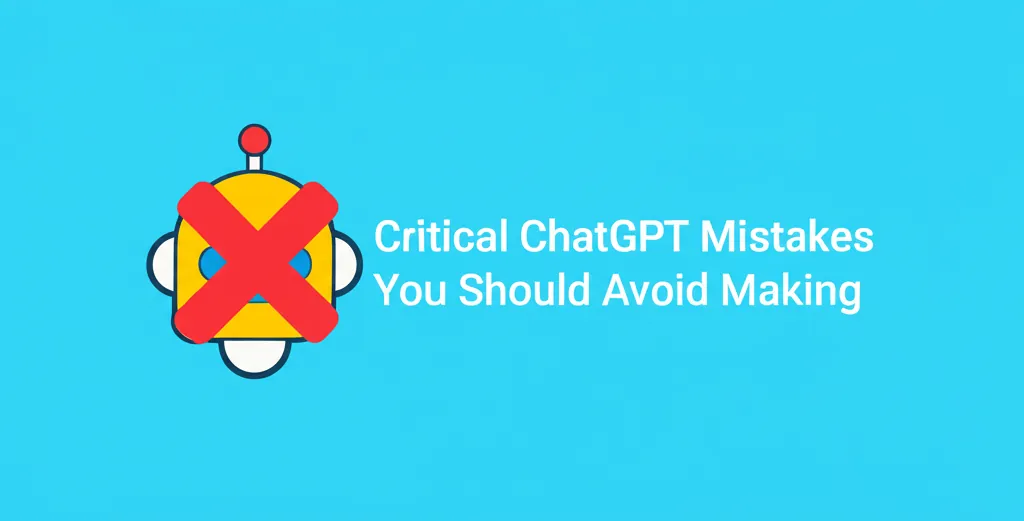Developer Offer
Try ImaginePro API with 50 Free Credits
Build and ship AI-powered visuals with Midjourney, Flux, and more — free credits refresh every month.
How To Use ChatGPT As A Writing Coach
Writing is often a challenging task, a mix of heavy lifting and tedious work. It's no surprise that many students are drawn to the convenience of ChatGPT, which can generate entire essays in moments, saving them from procrastination and all-nighters. However, true writing improvement comes from practice, not automation. The real question is whether AI chatbots can evolve into effective writing coaches that students use for genuine improvement, not just for taking shortcuts.
Jennifer Meyer, an assistant professor at the University of Vienna, has been researching this very topic. She believes AI holds potential but urges caution in how we use this new technology to become better writers.
The Right Time for AI Intervention
Meyer argues that timing is everything. While ChatGPT is available 24/7, students shouldn't turn to it at the beginning of their writing process. Instead, she believes the most significant learning occurs when students write a first draft on their own.
It is at this revision stage that AI can be most beneficial. A chatbot can provide immediate, personalized feedback. For example, it can help one student practice writing shorter sentences while assisting another with story structure. In theory, AI could meet the individual needs of an entire classroom far more quickly than a human teacher.
Evidence from the Classroom
To test this, Meyer conducted a 2024 study involving German high school students. After writing a draft of an essay in English, one group received AI feedback, while a control group did not. The students who used AI produced stronger revised essays and reported feeling more motivated to rewrite—a critical step in the learning process.
However, Meyer is quick to point out the study's limitations. She didn't compare AI feedback to human feedback, only to no feedback at all. More importantly, a single session of AI feedback wasn't enough to improve a student's fundamental writing skills. On a new essay topic, the AI-assisted group performed no better than the control group.
Your Brain on ChatGPT: The MIT Study
A separate MIT study titled "Your Brain on ChatGPT" supports Meyer’s theory. It gained attention for showing that using ChatGPT to write an essay from scratch resulted in lower brain engagement compared to writing without AI. However, the study also found that when students who had already written a draft were then given ChatGPT to help with revisions, their brain activity actually increased. These findings suggest that delaying AI use until after the initial creative work could be the sweet spot for learning.
Still, Meyer expresses concern about introducing these tools too early, especially for young children or very weak writers who have not yet developed basic skills.
Learning by Copying: A New Take on an Old Method
Interestingly, Meyer doesn't completely dismiss the idea of having ChatGPT write for a student. She suggests a method similar to how artists learn by copying masterpieces. A student could ask ChatGPT to generate a sample essay based on their assignment's criteria.
The crucial step is what happens next. Submitting the AI's work is cheating and teaches nothing. However, if the student analyzes the AI-generated essay—studying its arguments, structure, and vocabulary—before writing their own version, it can become a powerful learning tool. "As long as there’s cognitive effort with it... then it should be fine," Meyer states.
The Problem with AI Praise
One of ChatGPT's quirks is its tendency to offer excessive praise, often starting with phrases like "Great job!" even for mediocre writing. Research, including a 2023 writing study, shows that this kind of generic praise can give students a false sense of accomplishment, reducing their motivation to revise.
In her experiment, Meyer intentionally instructed the AI to skip the praise and provide only constructive criticism. While this approach proved effective in encouraging revisions, she notes that human teachers found the feedback overly negative. Finding the right balance remains a challenge.
Ultimately, while researchers work to perfect AI as a writing coach, the biggest hurdle may be human nature. As long as ChatGPT offers an easy way out, the temptation for students to choose convenience over cognitive effort will remain.
Compare Plans & Pricing
Find the plan that matches your workload and unlock full access to ImaginePro.
| Plan | Price | Highlights |
|---|---|---|
| Standard | $8 / month |
|
| Premium | $20 / month |
|
Need custom terms? Talk to us to tailor credits, rate limits, or deployment options.
View All Pricing Details

